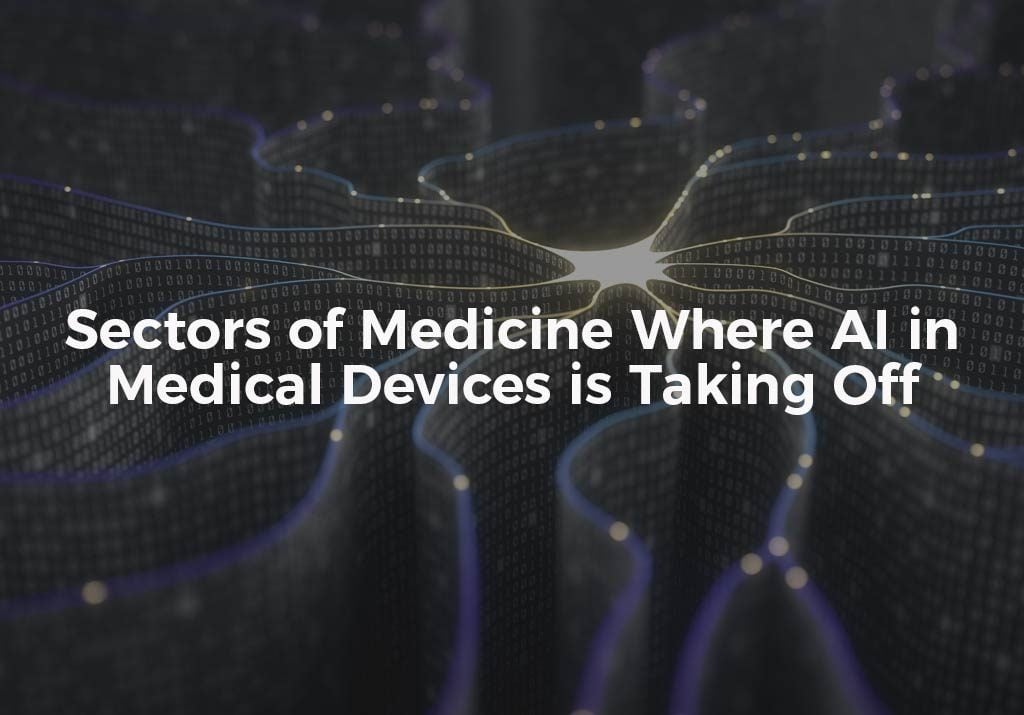While artificial intelligence is rapidly being integrated into medical device technologies, AI is still in its early stages of development. AI has become very “good” at performing certain automated processes, such as speech recognition and image processing, while remaining “weak” at other applications, like some aspects of facial recognition or broad data processing. As such, it is no surprise that there are several medical disciplines where AI is rapidly being adopted (e.g., medical imaging, pathology, diabetes management, neural networks, etc.) because AI technology is “good” at performing the types of analysis that are necessary in these disciplines.
AI in Medical Imaging
AI programs can do wonders to scan and refine medical images to high definition. The improved clarity of the medical images leads to better analysis, which can lead to earlier detection of serious medical conditions, such as cancer. Using AI to enhance and analyze medical images also has the added benefits of freeing up more of the clinician’s time and reducing a patient’s exposure harmful radiation.
AI in Diabetes Management
Diabetes management has always been a particularly challenging field of medicine because patient compliance can be highly variable. Some patients might underestimate their need for insulin after eating, exercising, or periods of stress, or may forget to administer their insulin, or may administer too much or too little. Automating the insulin administration process can help to eliminate the patient-interaction component of diabetes management, which can lead to better control over the patient’s blood glucose levels.
AI is an ideal solution to diabetes management. AI that is integrated into a collection of physiological sensors can take measurements about the patient’s current insulin need and then can make decisions about insulin administration time, duration and amount, based on the data that is collected by the sensors. AI could also be used in a predictive manner, to predict the patient’s insulin needs based on activities that the patient is currently involved in or the patient’s regular schedule of activities. AI also can be used log a patient’s insulin administration history, blood glucoses levels or to log a patient’s food consumption history.
Protecting AI-Related IP in Medical Devices
The field of patient care is in the process of being revolutionized by the adoption of AI technologies. AI-enabled medical devices make providing care to patients safer, easier, more affordable and more reliable. The companies that are creating and developing these cutting-edge AI medical devices need to protect the valuable intellectual property that is behind their AI technology.
- Patents can be sought for the underlying AI software process or method of use, as well as for the physical medical device itself and the overall design of the medical device.
- Copyright protection can be sought for the AI software code.
- If the AI software has a trade name, or the medical device that uses the AI has a specific name, then the product names could be protected as trademarks.
- The AI algorithms and the technical know-how that went into developing the medical device AI could be protected with trade secret protection.
Contact an Experienced Software IP Lawyer
Emerging AI technologies for medical device applications are making diagnosis and treatment better for patients. The intellectual property behind medical device AI software needs to be protected, and an experienced software IP lawyer can help you decide what forms of IP protection can be beneficial for your AI software. Contact one of the professionals at The Rapacke Law Group to schedule a free initial consultation today.




